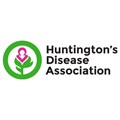Story
Welcome to my TCS London Marathon #TeamHDA fundraising page. I will be taking part in the 2024 TCS London Marathon to help us support people living with Huntington's disease in England and Wales and also to raise as much awareness about the rare disease as I possibly can.
Huntington's Disease is a very rare neurodegenerative condition that leads to a decline in health over a period of 15-20 years for which there is currently no cure or treatment. It is inherited genetically. Each child of a HD carrier has a 50% chance of inheriting the gene.
It has always been my dream to run the London Marathon for Team HDA and to raise as much money and awareness for HD as possible. I am truly honoured that my dream has come true :-)
Please find below some more info on the symptoms of HD.
HD affects 3 main areas:
- Movement - movements may happen that you don’t expect, while doing what you do want to do becomes more difficult
- Cognition - difficulties with planning and thinking
- Behaviour - changes in behaviour and personality
Some of the symptoms that can occur in each stage are below:
Early symptoms may include slight, uncontrollable muscular movements; stumbling and clumsiness; lack of concentration and short-term memory lapses; depression and changes of mood and personality.
- You may make movements that you don’t want to make (called chorea) while at the same time, it can become harder to make the movements you do want to make. For example, it might become more difficult to do up buttons or turn the pages of a book.
- You may have difficulty with organising and planning.
- You may feel and behave differently and you may become angry, irritable or frustrated.
- You may find activities take longer or are hard to finish.
- It may be harder to deal with new situations.
- You may become more forgetful.
Symptoms of the middle stage of the illness often revolve around changes in muscles and movement, although changes in behaviour may also become more significant and challenging too.
- Your muscles are likely to start making involuntary contractions and become stiff and rigid.
- This will cause your movements to slow down and your arms and legs may become clumsy.
- You may start to experience changes in how you speak as forming words becomes more tricky. Speech therapy and certain equipment can help a lot with this.
- It may become difficult for you to swallow, making eating difficult. Support from a dietician can help to make sure you keep your weight up.
- Your behaviour may change as feelings of anger, frustration or depression become quite intense. This can be quite challenging for you and those around you. It doesn’t happen to everyone but it’s more likely to happen if you start to develop symptoms in your teens.
The nature of Huntington’s means that over a period of many years, the disease progresses until the end of life
Later on, you may experience difficulties with:
- weight loss and nutrition
- speech and swallowing
- movement and stiffness
- communication
I would be so grateful for any donations (large or small) to help myself and others that are suffering as a result of this awful disease!!
Thanks so much for reading xxxxx
Now let's get training and smash this Marathon and live my best life :-) yehaaahhhh!!!!
